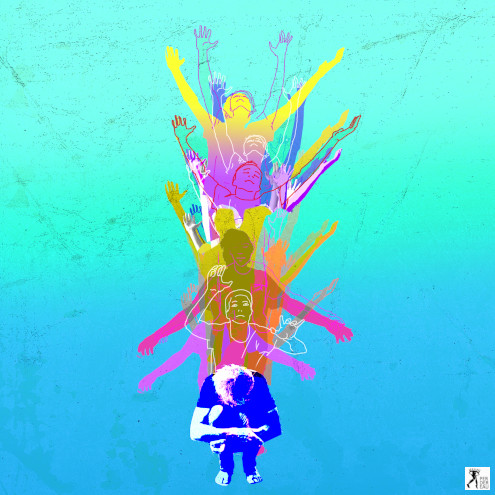Rethinking Work with Those in Poverty


By ATD Fourth World’s International Leadership Team
In Africa and Europe
An ATD Fourth World team working with people living in extreme poverty in Africa recently told us that “due to the lack of jobs, people are forced to accept any work […]. Many started their own businesses and became street sellers, but then the government prohibited this. Because they can’t work, they cannot repay their business loans; now they find themselves without a job and have difficulty finding another one. On top of this is the humiliation and violence they suffered when their business was forcibly closed.”
Thousands of kilometres away, in Europe, Agnès tells us, “After I left school, I did an apprenticeship […] but I found myself unemployed immediately after […]. I eventually got a job […], but the boss treated me like a stupid little child. […]. When you are unemployed, you have no dignity. You are oppressed. Governments need to see how difficult it is to live on social assistance, especially with a child. It destroys you. […]. Maybe someone high up will hear this and think about what they’re doing to people like me.”
Deprived of employment
No matter where they live, the reality is the same for people burdened by extreme poverty. They are deprived of employment or must work in the informal economy — without social and legal protection — or in undeclared employment. Wherever they are, people in extreme poverty struggle against tremendous difficulties. Survival mode is their normal. Yet, we see that people who struggle against marginalisation are not passive. They get up every morning to do unseen work that supports their families, their communities, and society.
Through acts of resistance and helping others, people in extreme poverty uplift and hold together their communities. They are the ones doing the work and taking the first steps to repair our world.
Those who face injustice, shame, rejection, and contempt know something that no school can teach: the importance of human dignity.
Promises not kept
People in extreme poverty show us that we can no longer escape reality: the promises of fundamental rights are not being kept. What happened to the spirit of the Philadelphia Declaration in 1944? This founding text of the International Labour Organization (ILO) states that “Labour is not a commodity” and that
“All human beings, irrespective of race, creed or gender, have the right to pursue both their material progress and their spiritual development in freedom and dignity, in economic security and with equal opportunity.”
Philadelphia Declaration
We believe that to build a desirable future, decent work must be a right for all. All jobs must provide sufficient income to live, have safe working conditions, and allow everyone the opportunity to contribute their intelligence and abilities. Equally, there needs to be social protection that ensures people are able to bounce back from life’s setbacks: one that allows us to take care of one another.
October 17 2023
For this October 17 World Day for Overcoming Poverty, we listen to the experiences of those who work in the informal sector and the unemployed. Let us see them as full partners in rethinking work. Finally, let us welcome their contributions to society. So that together, we can work towards rights from which we can all benefit.
Through our activism, let’s put dignity into practice together!
Bruno Dabout, Martin Kalisa, Chantal Consolini-Thiébaud

